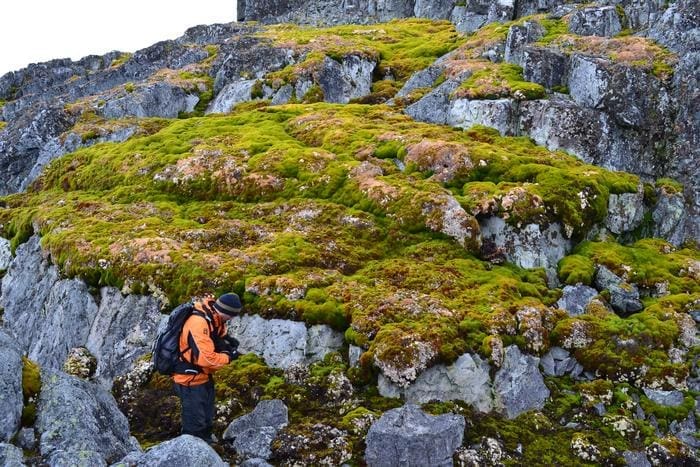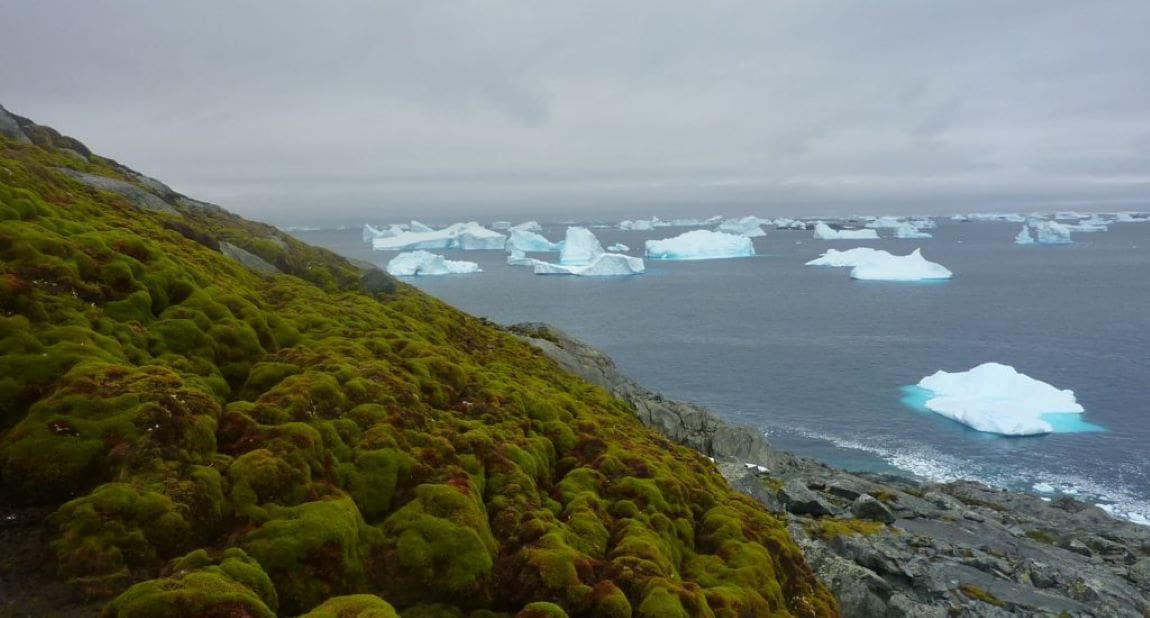The Antarctic Peninsula has experienced a dramatic increase in vegetation cover over the past four decades, according to new research.
A study by the universities of Exeter and Hertfordshire, along with the British Antarctic Survey, revealed that plant life across the region has expanded more than tenfold, with vegetation cover rising from less than one square kilometer in 1986 to nearly 12 square kilometers by 2021.
This unprecedented growth is directly linked to the rapid warming of the Antarctic Peninsula, a region that, like many polar areas, is warming faster than the global average. Extreme heat events in Antarctica have become more frequent, fueling this transformation.
The study, published in Nature Geoscience, relied on satellite data to assess the extent of the “greening” trend, showing that plant growth has accelerated by over 30% in recent years.
Between 2016 and 2021, vegetation expanded by more than 400,000 square meters annually, highlighting the accelerating pace of change. This finding corroborates earlier research (in 2017) that used core samples from moss-dominated ecosystems in the region, which also found a significant increase in plant growth rates in recent decades.

“The plants we find on the Antarctic Peninsula – mostly mosses – grow in perhaps the harshest conditions on Earth,” said Dr. Thomas Roland of the University of Exeter. “The landscape is still almost entirely dominated by snow, ice, and rock, with only a tiny fraction colonized by plant life. But that tiny fraction has grown dramatically – showing that even this vast and isolated wilderness is being affected by anthropogenic climate change.”
Dr. Olly Bartlett from the University of Hertfordshire noted that as these ecosystems establish themselves and the climate continues to warm, greening across the region is expected to increase. The limited soil on the peninsula, mostly poor or non-existent, will likely benefit from the growing vegetation, which will add organic matter and contribute to soil formation.
This could potentially pave the way for more plant species to colonize the region. However, Bartlett raised concerns about the risk of non-native and invasive species being introduced, possibly carried by eco-tourists, scientists, or other visitors.
The study’s authors stressed the need for further research to understand the specific environmental and climatic mechanisms driving the greening phenomenon.
“The sensitivity of the Antarctic Peninsula’s vegetation to climate change is now clear, and under future anthropogenic warming, we could see fundamental changes to the biology and landscape of this iconic and vulnerable region,” said Dr. Roland. “Our findings raise serious concerns about the environmental future of the Antarctic Peninsula and the continent as a whole.”
The research team is now investigating how deglaciated landscapes are being colonized by plants and how this process might evolve in the future. Understanding these changes is crucial to protecting the Antarctic region from the potentially far-reaching impacts of climate change.
Journal Reference:
Roland, T.P., Bartlett, O.T., Charman, D.J. et al. ‘Sustained greening of the Antarctic Peninsula observed from satellites’, Nature Geoscience (2024). DOI: 10.1038/s41561-024-01564-5
Article Source:
Press Release/Material by University of Exeter
Featured image: Green Island Credit: Matt Amesbury




